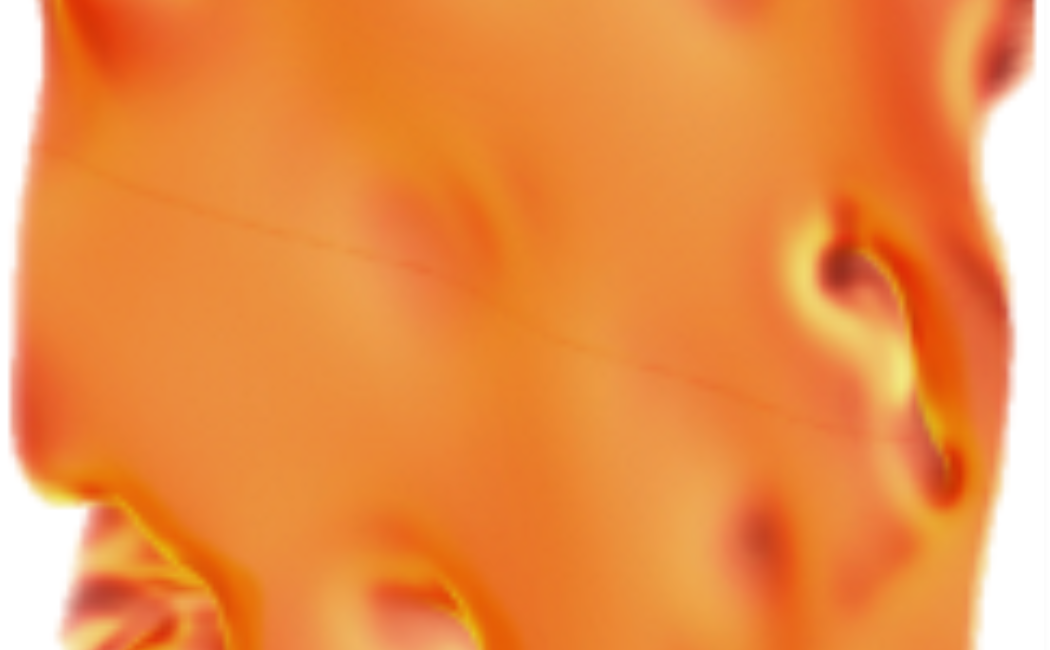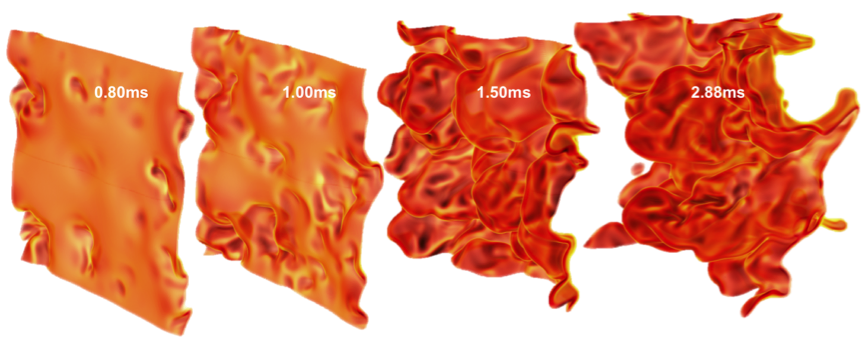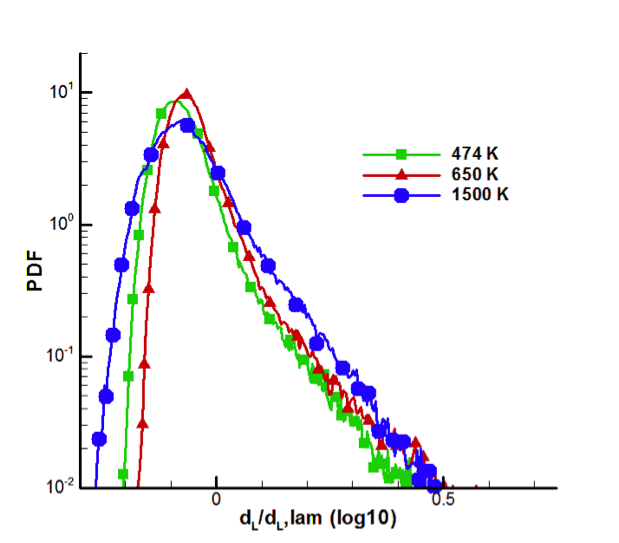


Participants
Paul G. Arias
Motivation and Objectives
The effect of turbulence on premixed flame propagation characteristics has been a long-standing fundamental question in combustion research. Many existing theoretical descriptions are based on simple chemistry and at weak to moderate levels of flame wrinkling, thus need to be carefully assess at higher levels of turbulence with consideration of detailed chemical pathways for combustion. To this end, high resolution direct numerical simulations (DNS) of three-dimensional premixed flame propagation through homogeneous isotropic turbulent flows are conducted at high Reynolds and Karlovitz numbers, and the detailed simulation data are analyzed to investigate various statistical characteristics of turbulent flame dynamics.
Approach
The DNS code is based on S3D developed in collaboration with Sandia National Laboratories, for compressible Navier-Stokes and reactive species equations, employing high order explicit time integration and spatial discretization. Simulations are conducted at high Reynolds and Karlovitz numbers to represent a significant level of flame wrinkling and stretching. Detailed hydrogen/air chemistry is currently being considered, for various mixture composition conditions to investigate the effects of preferential diffusion. The mean inlet velocity was dynamically adjusted to ensure a stable flame with the computational boundary, allowing extensive analysis of characteristics in statistically developed turbulent flames.
Highlights of Results
Volume rendering of heat release rate at different times, showing the establishment of fully developed turbulent flame propagation.

Probability density function of the flame thickness demonstrates an overall flame thinning effects due to turbulence interaction, while the level of thinning varies depending on the choice of flame surface based on different values of the reaction progress variable.
